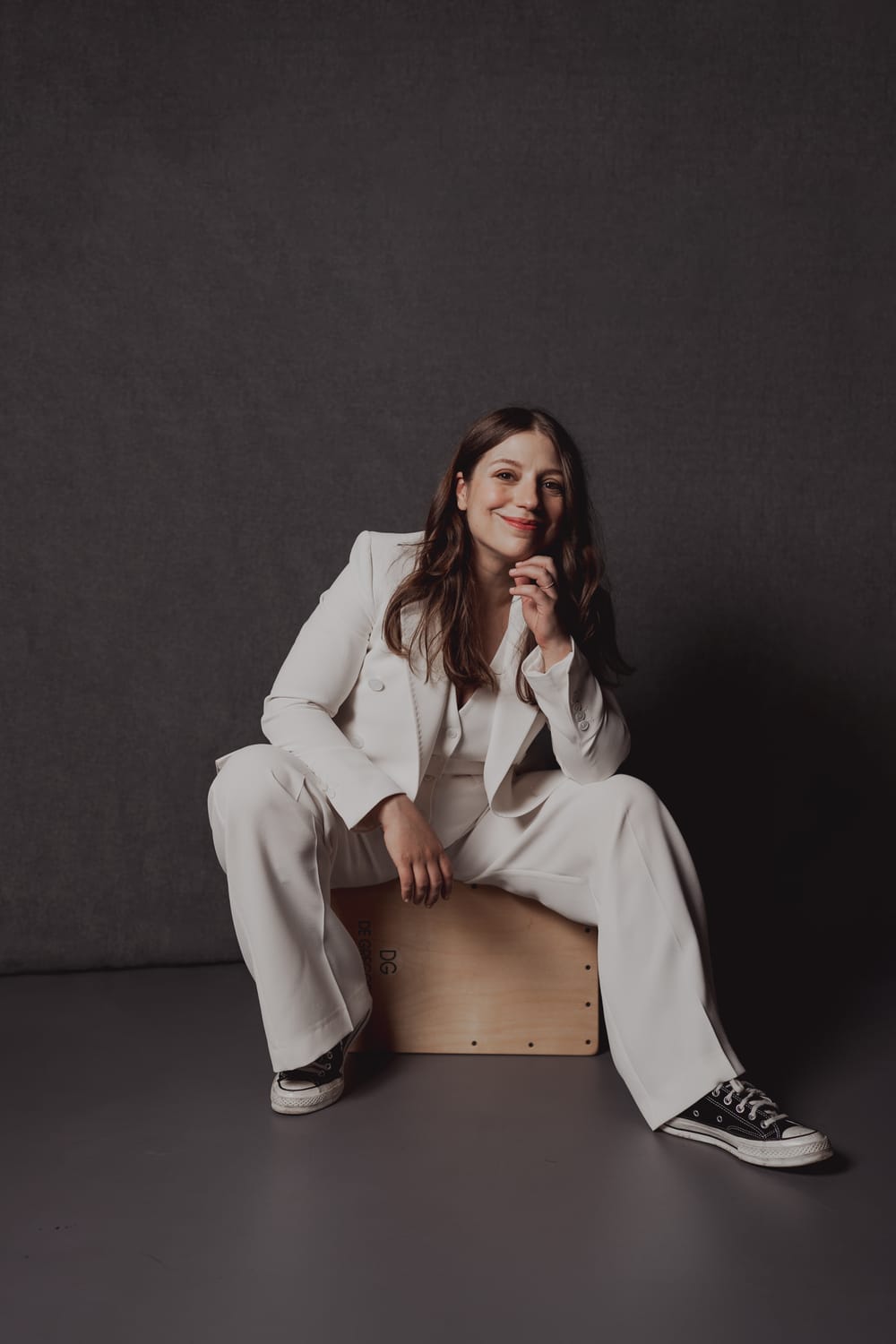Stay in the Loop
BSR publishes on a weekly schedule, with an email newsletter every Wednesday and Thursday morning. There’s no paywall, and subscribing is always free.
The music finds us
Ukrainian-born conductor Dalia Stasevska leads Philadelphia Orchestra performance with pianist Emanuel Ax

The celebrated pianist Emanuel Ax returns to Philadelphia to perform one of Mozart’s most courtly and joyful piano concertos, No. 17 in G Major, with the Philadelphia Orchestra. Paired alongside, in a program curated by visiting conductor Dalia Stasevska, are works by Ravel and Witold Lutoslawski that complement and challenge Mozart’s familiar, facile sound world. The performance runs May 9-11, 2025.
Songs in our heads
“I can’t take my life away and who I am, what I’m thinking daily,” says Stasevska, who was born in Ukraine and has been actively supporting efforts there by raising donations and performing concerts in the country. “Ukraine is constantly present for me,” she says.
While not explicitly political, this weekend’s program speaks to the kind of soul-searching that attends such moments of conflict. The structure of the program reflects Stasevska’s own nuanced answer.
On the one hand, the first half, featuring Ravel’s Pavane for a Dead Princess and Mozart’s Piano Concerto in G Major, is “like a showcase of the greatest tunes and elegance and beauty in music,” says Stasevska. Ravel’s Pavane, a “beautiful miniature,” kicks off the program. The piece is both a product of and a nod to simpler times—written for the Parisian salon in 1902, it harkens to a courtly dance style of the 16th and 17th centuries.
Ax’s performance of Mozart’s G Major piano concerto—one of Mozart’s “wittiest pieces,” according to program notes—comes next. “I’m just a humble student when I work with him,” Stasevska says of collaborating with Ax. “I’m all ears and I’m so grateful.”
The good things
These first half selections align with Stasevska’s vision of music “as a space for a reminder of normality" and “the good things.” She has felt this especially when playing in Ukraine, where concerts become “celebration[s] of life.”
“It is almost like charging batteries so you can wake up to the next day and face reality,” Stasevska says.
But reality can’t be avoided forever, and simplicity has a way of curling into complication. Both pieces to be performed in the second half of the program were written in the wake of war and exhibit, one might say, a greater sense of doubt.
The second half opens with the fourth symphony of Witold Lutoslawski, a Polish composer whose father was executed by Bolshevists and who himself was taken prisoner by Nazis during World War II. While Stasevska insists that there is humor in the piece, especially during the “party” at the end, it is also “deeply emotional” and eschews certainties, harmonic or otherwise. There are even improvisatory elements—“Luto boxes”—that ensure that no performance of the piece is ever the same.
The program concludes where it began, with Ravel, but with a piece written at a very different point in the composer’s life. By the time he began working on La Valse in 1919, Ravel had served in World War I, suffered bouts of illness, and the Vienna to which his music paid homage was dead. “This piece touches me immensely right now,” Stasevska says. “How do you cope with fighting against a culture that you appreciate?” What becomes of art when “friends become enemies?”
Stasevska has her own answer to that question right now: she is not performing Russian music. But everyone must make their own choices, she acknowledges. “The power of art is that it's such a private experience,” she notes. “But it's such a communal experience also, and when words don't find us, maybe the music does.”
At top: Conductor Dalia Stasevska performs with the Philadelphia Orchestra this weekend. (Photo by Matthew Johnson.)
What, When, Where
Ravel, Pavane for a Dead Princess and La Valse; Mozart, Piano Concerto No. 17 in G Major, K. 453; Witold Lutoslawski, Symphony No. 4. Conducted by Dalia Stasevska. Emanuel Ax, piano. May 9-11, 2025, at the Kimmel Cultural Campus’s Marian Anderson Hall, 300 S Broad Street, Philadelphia. (215) 893-1999 or philorch.ensembleartsphilly.org.
Accessibility
Marian Anderson Hall at the Kimmel Cultural Campus is a wheelchair-accessible venue. For more info, visit Ensemble Arts Philly's accessibility page.
Sign up for our newsletter
All of the week's new articles, all in one place. Sign up for the free weekly BSR newsletters, and don't miss a conversation.

 Lowry Yankwich
Lowry Yankwich